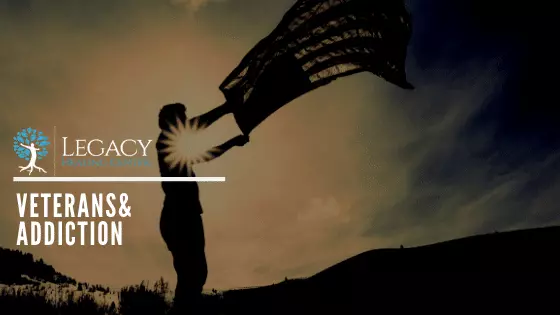Breaking Down Recreational Drug Culture in America
Recreational drug culture in America has evolved significantly over the decades, shaped by shifting societal norms, media influences, and changing legal landscapes. What was once associated with counterculture movements has now become intertwined with modern social scenes, from music festivals to college campuses. While some view the recreational use of drugs as a way to enhance experiences or escape reality, the broader impacts on individuals and society cannot be ignored. At Legacy Healing Center, we believe it’s essential to examine this culture’s origins, popular substances, and societal effects to understand its influence better and provide support for those affected by addiction.
The Origins and Evolution of Recreational Drug Use in America
Recreational drug culture in America has deep roots that stretch back decades, influenced by significant social and cultural movements. In the 1960s, the counterculture revolution introduced drugs like marijuana and LSD as symbols of rebellion and freedom. Psychedelics became particularly popular during this era, with figures like Timothy Leary promoting their use as tools for expanding consciousness. Music festivals, like Woodstock, and the rise of anti-establishment movements fueled the idea that the recreational use of drugs was an expression of personal liberation.
In the 1980s and 1990s, the landscape of recreational drug use changed significantly with the emergence of cocaine, crack, and ecstasy. Cocaine turned into a status symbol among the affluent, whereas crack wreaked havoc on underprivileged communities, highlighting a troubling period in America’s past. At the same time, the nightclub and rave cultures surfaced, with MDMA (ecstasy) becoming the preferred substance for revelers. During this time, media coverage intensified, drug legislation became stricter, and certain substances and groups were marginalized.
Today, recreational drug use continues to evolve with shifting societal norms. The legalization of marijuana in many states has changed its perception, moving it from a taboo substance to one embraced for both medical and recreational purposes. Simultaneously, synthetic drugs, vaping, and prescription medication misuse have added new layers to the landscape. The normalization of using drugs recreationally in media, music, and social gatherings continues to shape how recreational use is viewed, especially among younger generations.
Popular Substances and Their Role in Modern Social Scenes
The substances commonly associated with recreational drug use today vary widely, often reflecting the environments in which they are used. Festivals, nightclubs, college campuses, and house parties all serve as spaces where recreational drugs are shared and normalized. In contrast, some substances like marijuana have gained widespread acceptance, and others, including synthetic and prescription drugs, present growing concerns due to their unpredictable effects.
These intoxicating substances can include:
- Marijuana: With increasing legalization, marijuana has become one of the most widely used substances, often seen as a more “socially acceptable” drug.
- Cocaine: A drug often tied to nightlife and party culture, cocaine remains popular in upscale social circles despite its risks.
- MDMA/Ecstasy: Common at raves and music festivals, this synthetic drug is known for its euphoric and energy-boosting effects.
- Prescription Drugs: Medications like opioids, benzodiazepines, and stimulants are increasingly misused, often taken recreationally for relaxation, focus, or euphoria.
- Psychedelics: Substances like LSD and psilocybin (magic mushrooms) are regaining popularity, particularly among younger generations exploring “mind expansion” experiences.
- Synthetic Drugs: Substances like synthetic marijuana (K2/Spice) and designer drugs are especially concerning due to their unpredictable and often dangerous effects.
The widespread availability of these substances has reshaped how drug use integrates into modern social life. While some individuals perceive recreational drugs as tools for enhancing experiences, the risks are often underestimated. Factors like peer pressure, misinformation, and media portrayal contribute to the normalization of this culture, making it essential to address the realities and dangers of these substances.
The Impact of Recreational Drug Culture on Society
The influence of recreational drug culture extends far beyond individual users, affecting families, communities, and society as a whole. Health consequences, such as addiction, mental health disorders, and physical harm, are among the most pressing concerns.
Many substances, even when used casually, can lead to dependency or long-term damage, particularly when their risks are underestimated. For example, drugs like cocaine and opioids can quickly create addiction cycles, while synthetic drugs carry unpredictable side effects. These health struggles place a significant burden on individuals and healthcare systems alike.
Beyond physical and mental health, the societal impact of recreational drug culture is seen in legal and economic challenges. Substance misuse often contributes to crime rates, financial strain, and overcrowded legal systems. Young people are particularly vulnerable, as exposure to drug culture through social media, music, and peer pressure normalizes these behaviors at an early age.
However, there is growing progress toward harm reduction strategies, education, and treatment-focused approaches that address drug use as a public health issue rather than solely a criminal one. This shift is critical to fostering healthier communities and providing support for those affected by recreational drug use.
Addressing The Effects of Drug Abuse at Legacy
Recreational drug culture in America has deep roots and continues to evolve, impacting individuals, families, and communities nationwide. While some substances are perceived as harmless or socially acceptable, the risks of addiction, physical harm, and mental health struggles are significant. Understanding these challenges is the first step in addressing them. At Legacy Healing Center, we provide comprehensive addiction treatment programs that offer individuals the tools and support they need to overcome substance misuse and reclaim their lives.
Whether you seek medical detox services to manage withdrawal safely or long-term treatment options tailored to your needs, our team guides you through every step. Explore more about addiction, recovery, and healthy lifestyle choices on our blog, which offers valuable resources and insights. If you or a loved one are struggling with drug or alcohol addiction, don’t wait; contact us at Legacy Healing Center today to take the first step toward lasting recovery.




